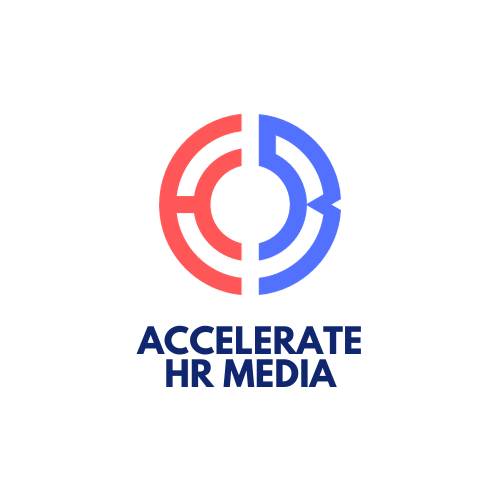
In the ever-evolving landscape of human resources, organizations are constantly searching for innovative ways to enhance talent management and workforce development. One of the most exciting advancements in this area is generative AI. This technology is not just a buzzword; it is revolutionizing how HR departments operate, making processes more efficient and effective. In this blog, we will explore how generative AI and HR intersect to create a more dynamic, engaging, and productive work environment.
Understanding Generative AI and HR
Generative AI refers to artificial intelligence systems that can create content, analyze data, and provide insights based on existing information. In the context of HR, generative AI can automate tasks, enhance decision-making, and improve employee experiences.
Key Components of Generative AI in HR
- Data Analysis: Generative AI can analyze vast amounts of data related to employee performance, engagement levels, and recruitment metrics.
- Content Creation: From drafting job descriptions to generating training materials, generative AI can produce tailored content that meets organizational needs.
- Automation: Many repetitive tasks that consume HR professionals’ time can be automated using generative AI, allowing them to focus on strategic initiatives.
How Generative AI is Transforming Talent Management in HR
Streamlined Recruitment Processes
One of the most significant impacts of generative AI is in AI recruitment. Traditional recruitment processes can be time-consuming and often lead to biases. However, generative AI tools can analyze candidate profiles against job requirements quickly.
Benefits of AI Recruitment:
- Efficiency: By automating resume screening and candidate matching, organizations can fill positions faster.
- Reduced Bias: Algorithms can help remove bias by focusing on skills and qualifications rather than demographic factors.
Personalized Learning and Development
Generative AI also plays a crucial role in creating personalized learning experiences for employees. By analyzing individual performance data, organizations can tailor training programs to meet specific needs.
Benefits of Personalized Learning:
- Skill Development: Employees receive training that directly aligns with their career goals, enhancing their skill sets.
- Increased Engagement: When employees feel that their development is prioritized, they are more likely to remain engaged with their work.
The Role of Generative AI in Improving Employee Engagement and Retention
Enhancing Employee Experience
Generative AI can significantly improve employee engagement by providing personalized experiences. For instance, chatbots powered by generative AI can answer employee queries instantly or guide them through onboarding processes.
Benefits of Enhanced Engagement:
- Real-Time Support: Employees receive immediate assistance for their questions or concerns.
- Increased Satisfaction: A positive experience leads to higher job satisfaction and loyalty.
Improving Employee Retention
By utilizing generative AI to analyze employee feedback and performance data, organizations can identify factors contributing to turnover. This insight allows them to take proactive measures to improve retention rates.
Strategies for Retention:
- Feedback Mechanisms: Regular surveys powered by generative AI can gauge employee sentiment.
- Career Development Opportunities: Offering personalized career paths based on data analysis helps employees see a future within the organization.
Generative AI Applications in Streamlining HR Processes and Operations
Automating Routine Tasks
Generative AI excels at automating repetitive tasks such as scheduling interviews or managing payroll. This automation frees up HR professionals to focus on more strategic initiatives.
Examples of Automation:
- Scheduling Tools: Automated scheduling tools can find suitable times for interviews without back-and-forth emails.
- Payroll Processing: Generating payroll reports becomes quicker and less error-prone with automated systems.
Data Integration Tools
Generative AI also enhances business process integration by providing tools that allow for seamless data flow between various systems. This integration is crucial for maintaining accurate records across departments.
Benefits of Data Integration:
- Consistency: Ensures that all departments have access to the same up-to-date information.
- Improved Decision-Making: Data-driven insights lead to better strategic planning across the organization.
Benefits of Generative AI for Talent Acquisition and Workforce Planning
Enhanced Talent Acquisition Strategies
Generative AI provides valuable insights that help organizations refine their talent acquisition strategies. By analyzing market trends and candidate behaviors, businesses can adapt their recruitment efforts accordingly.
Key Benefits Include:
- Market Insights: Understanding what candidates are looking for helps tailor job offerings.
- Faster Hiring Processes: With automated screening methods, organizations can significantly reduce time-to-hire metrics.
Effective Workforce Planning
Workforce planning becomes more efficient with the use of generative AI. By predicting future staffing needs based on historical data and trends, organizations can proactively address skill gaps.
Strategies for Effective Planning:
- Predictive Analytics: Using historical data to forecast future hiring needs ensures that organizations are prepared for changes in demand.
- Skill Gap Analysis: Identifying current skills within the workforce allows companies to plan targeted training initiatives.
Impact of Generative AI on Future HR Leadership Strategies
Evolving Leadership Roles
As generative AI continues to shape the landscape of HR, the role of leaders will also evolve. Future leadership strategies will need to incorporate technology-driven insights into decision-making processes.
Key Leadership Trends for 2025:
- Data-Informed Decisions: Leaders will increasingly rely on data analytics provided by generative AI to guide their strategies.
- Empathy in Leadership: Understanding employee needs through data will enable leaders to foster a supportive work environment.
- Agility and Adaptability: Leaders must be prepared to pivot quickly based on real-time insights generated by advanced technologies.
Building a Culture of Trust
Generative AI can help leaders build a culture of trust within their organizations by providing transparent insights into employee performance and engagement levels.
Benefits of Trust-Building:
- Open Communication: Transparent practices foster an environment where employees feel comfortable sharing feedback.
- Increased Loyalty: When employees trust their leaders, they are more likely to remain committed to the organization.
Conclusion
As we look toward the future, it’s clear that generative AI and HR are intertwined in ways that will revolutionize talent management and workforce development. From streamlining recruitment processes through AI recruitment tools to enhancing employee engagement with personalized experiences, generative AI offers numerous benefits that organizations cannot afford to overlook.

